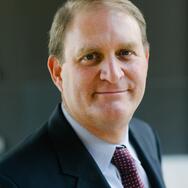Our Democracy Depends on a Safe Election in November
Our Democracy Depends on a Safe Election in November
As the COVID-19 pandemic continues, the effects could be potentially devastating to global democracy and the upcoming U.S. election. On the World Class podcast, Larry Diamond and Nathaniel Persily discuss what needs to be done to ensure a healthy election in November with host Michael McFaul.

There is nothing that will happen in the foreseeable future that will have a bigger impact on democracy than the upcoming United States presidential election, Larry Diamond told host Michael McFaul on the World Class podcast. If the election is not credible, inclusive, free, and fair, it could have lasting effects on the prestige of democracy around the world.
If, for example, the election on November 3 plays out similarly to the Wisconsin primary in April — during which many people were forced to choose between voting and potentially exposing themselves to COVID-19 — Americans should expect even more polarization within the country and less respect from other nations, said Diamond, who is a senior fellow at the Freeman Spogli Institute for International Studies (FSI) and the Center on Democracy, Development and the Rule of Law.
“It's going to severely damage American prestige and soft power in the world, the image of liberal democracy in the world, and the capacity of the U.S. to act on the world stage. We're going to be so consumed by the bitterness and controversy over the conduct of our election — it's going to tear us into pieces,” he said. “The only way to preempt that descent into ‘polarization squared’ is to have a credible, transparent, fair, and competently run election.”
Nathaniel Persily — also an FSI senior fellow and co-director of the Cyber Policy Center — is doing everything he can to make sure that voters who enter a polling place in November won’t be risking their lives. Persily, who is co-directing the Stanford-MIT Project On a Healthy Election, told McFaul that action needs to be taken now to provide states and municipalities with the resources they need to ensure that a safe election can take place.
Currently, there are only five states that vote entirely by mail — Oregon, Washington, Colorado, Utah, and Hawaii. 29 states have no excuse absentee voting, which allows any citizen to request an absentee ballot, while 16 states require that a citizen provide a valid excuse to vote absentee. However, it’s likely that some people will have no choice but to vote in person in November, said Persily.
He pointed to places like Pennsylvania and Wisconsin as examples of states that have very few numbers of people registered to vote by mail, and are therefore more unprepared for a transition than states that have a sizable number of their citizens already voting by mail.
But it shouldn’t be expected that all states will be able to move to an all vote-by-mail system in time for the election, and it would actually be undesirable for some to do so, said Persily. Some states do not have the address lists necessary to ensure that all citizens obtain a ballot, and others do not have the equipment in place to make sure that all citizens can vote by mail.
“There are subsections of the population who really want to vote in-person,” Persily pointed out. “So you have to supplement the mail ballot process with healthy polling places. And it has become a real challenge to figure out how to retrofit our polling places at a time when schools, senior living centers, and firehouses are taking themselves out of the inventory of available polling places.”
Persily and Diamond both recommended that Congress increase funding to states to strengthen both their absentee voting capacities and the security of their operations. For example, the U.S. is poised to lose about half of its polling places because they are not conducive to social distancing, Persily noted. Finding alternatives will require money and planning, and states and municipalities need funding immediately in order to make the procurement decisions for the fall.
“The thing that worries me the most is that over the next few months, we might start to drop our guard, and maybe we will start relaxing social distancing,” said Persily. “And then come October, the virus will come back in full force, and any state that hadn't prepared for increased mail balloting and safe polling places will be out of luck. You cannot make these decisions in the two months before the election. It's simply going to be too late.”
“We've got nearly six months to prepare for this — to put in place the equipment, the training, the new procedures and rules, and the recruitment of new personnel,” added Diamond. “There is a lot we could do with proper planning. And if we fail to do it with this advanced warning and counsel, and with knowing that we have the means to do it, it will be a historic and extremely costly failure for American democracy.”




